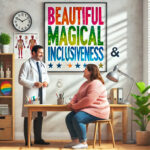Writing a memoir through drawing on personal diaries and other keepsakes
Writing a memoir through drawing on personal diaries and other keepsakes
Fashioning a memoir out of a diary requires threads and themes to be picked up and woven into a story that the writer and publisher believes will appeal to and connect with readers. Many re-writes may occur in selecting raw material, structure and content. Much of the daily repetition and drudgery is deleted during this importance process. A diarist writes today with no certainty of what tomorrow will bring. A memoirist, however, contains their story within a framework that has a beginning and an end.
Make initial contact by emailing: june@junealexander.com
In this first email, to enable a thorough and helpful assessment, briefly describe your work or proposed work. Address the following questions:
- Do you want to write your life story and need assistance to get started? Have you accomplished some initial work and would like advice on how to proceed? Have you got bogged down? Have you completed your work and want to refine it, add some polish?
- Describe your intended readership. Who are you writing your story for? Who do you want/expect to read it? For instance, is it for your own satisfaction, do you want to share it with family members, share with others who have similar experience, submit it to a publisher?
- What is the approximate word count?
- Indicate whether you require a) manuscript assessment only, b) manuscript assessment and editing, or c) mentoring (the full package).
- Include your phone number if you would like to discuss your project more directly and in more detail. This will give you opportunity to ask questions and will allow me to fine tune the assessment of I can best help you achieve your dream.
- Make a $100 payment online (see payment details) to cover the cost of the written basic assessment.
- Expect to receive the basic assessment within one week of lodging payment and initial email. This assessment will propose a step-by- step schedule for proceeding. Work on your manuscript will commence as soon as agreement for service is established.
- The fee structure will be based on the level of involvement required and word count. Payment is to be made in advance, or by arrangement.
At all times you may expect:
- Clear and objective reports written in a constructive, non-judgmental manner.
- Overviews, taking into account your work’s weaknesses and strengths.
- Guidance on how to improve your skills and develop your work further.
- Turnaround time within one month of submitting a manuscript, starting as soon as your agreement for service is in place.
- Opportunity to discuss work: besides email, Skype or phone sessions can be arranged.
What Help do you require?
Mentoring
Mentoring covers discussion of a work at any stage from initial idea to completion; specific advice; review of a synopsis or manuscript proposal; proof reading; structural editing and copy editing. It includes reading, writing responses, editing passages as examples, workshops and email or telephone consultations.
Mentoring involves a number of text exchanges between writer and editor – this is more comprehensive and time-consuming and therefore more expensive. The extra effort shines through in the result.
Length of mentoring time and mentoring fees will be negotiated prior to commencement.
Mentoring can take place via email, Skype or phone.
Editing
Editing has two aspects:
Structural or composition editing
An assessment provides constructive feedback on big picture elements and suggests ways to improve your work. An example is telling a story chronologically, or using flashbacks.
Copy editing
Your manuscript is edited in close detail and comments and suggestions are tracked for consideration. Examples include grammar, tenses and word flow. At all times the writer will make decisions based on information supplied.
Structural and copy editing can be carried out concurrently, or separately.
Editing can be a ‘one-off’ service for a particular piece of writing. In a mentor relationship it is one aspect of work required (described above) to complete the story.ve) to complete the story.
Fees
Manuscript assessment
Structural editing (assessment of manuscript only) – Up to 5000 words, $60 per hour (maximum $180).
Copy editing (editing of content) – Up to 5000 words, $60 per hour (maximum $250).
Structural editing and copy editing – Up to 5000 words, $60 per hour (maximum $330).
Costs thereafter are on a sliding scale.
For instance:
20,000 to 25,000 words – Structural editing ($350); copy editing ($450); structural and copy editing ($650).
65,000 to 70,000 words – Structural editing ($450); copy editing ($800); structural editing and copy editing ($950).
95,000 to 100,000 words – Structural editing ($650); copy editing ($1000); structural editing and copy editing ($1250).
Additional charges for editing may apply, depending on the amount of editing required. In such cases, the writer will be informed before editing starts. The above fees apply for one reading. If the text is returned for more editing/assessment, additional fees will apply as per the above scale or by arrangement.
Mentoring
The mentoring fee will take into account the amount of communication and work required to complete the writing project. This will be discussed at the outset and work will proceed as soon as agreement is reached. The initial fee of $75 covers the cost of a written assessment on steps required to complete your project.
Presentation
All material submitted must be double line-spaced, in 12-point type with generous margin. Pages are to be numbered bottom right corner. Include a title page with the following details: Your name, name of work, contact details (phone/email/postal address).
Send your manuscript as an attachment (Microsoft Word file). Editing will be tracked on line and returned on line.
If you prefer hard copy, retain your original work and send a copy, unbound and secured with elastic bands in secure envelope. Include postage for its return.





